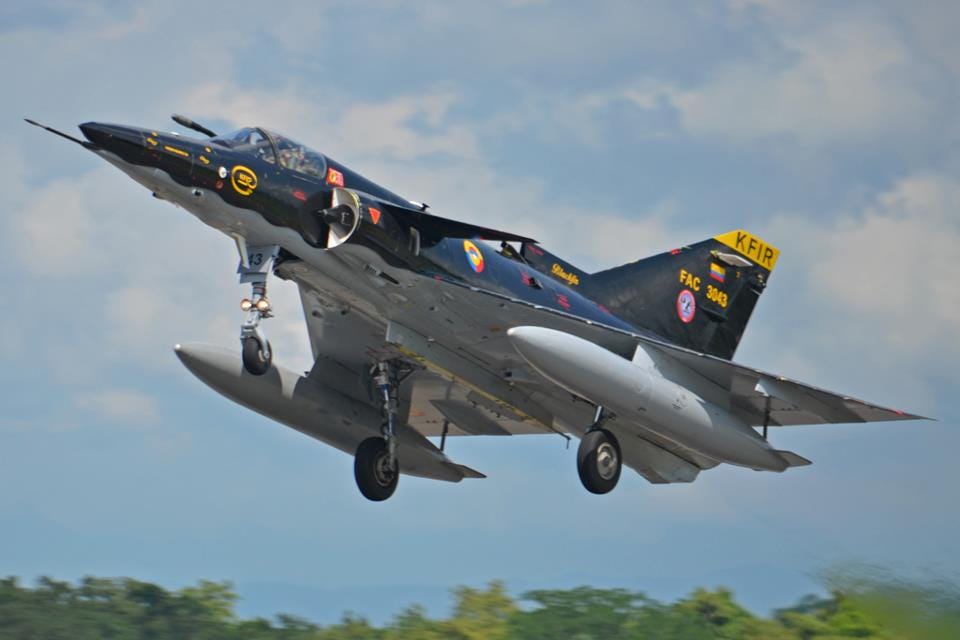Colombia to stop arms purchases from Israel in response to attack on humanitarian aid delivery
President Petro vows to end a decades-long security relationship. What does that mean for Colombian forces?
On Thursday Feb 29, Colombian President Gustavo Petro announced that he will order Colombian security forces to stop buying arms from Israel. He made the announcement in response to news that Israeli soldiers shot at least 100 Palestinians during humanitarian aid distribution in Gaza.
"Asking for food, more than 100 Palestinians were killed by Netanyahu. This is called genocide and is reminiscent of the Holocaust, even if the world powers do not like to recognize it," he said in public statements.
It is not the first time that Petro, who has been a strong critic of Israeli actions in Gaza, has threatened to end a decades-long security partnership with the Middle Eastern country.
This time he has promised to follow through on his threats. What does that mean for Colombian security forces who depend on Israeli small arms and aircraft?
We break it all down here.
Colombian security forces are dependent on Israeli arms
Israeli-designed small arms are standard issue for Colombian soldiers. The manufacture of the Galil rifle, in particular, has been a crucial point in the arms relationship between the two countries. But Colombia's dependence on Israel extends to other aspects of security, including military equipment, aircraft, heavy artillery, and special operations training.
The Galil rifle, of Israeli origin, is used by every branch of Colombia's armed forces. So important is its use that Colombia was able to get Israel to provide the patent to manufacture it through Colombia’s state-owned manufacturer Indumil.
If Israel does suspend security exports, the production capacity of these rifles in Colombia would be compromised, not only because of the permits that allow their production but also because many of the parts come directly from Israel before assembly in Colombia.
Indumil also produces pistols, explosives, and riot control weapons of Israeli design. Ammunition for small arms is standardized, and easily replaced, but in the medium term, they would need to replace the weapons with purchases from another country.
The only fighter jet in service in Colombia is the Israeli-produced Kfir fighter/bomber, which was used extensively in the country’s civil war. Colombia also buys Israeli-produced anti-aircraft batteries, missiles, and anti-armor weapons.
Some military experts have pointed out that while these weapons would not be difficult to replace in the medium term, doing so would require retraining pilots and soldiers to use them.
In addition to military weapons, however, Colombia also imports significant surveillance and spying technology— items that have been used by the military in several illegal surveillance operations conducted on politicians, journalists, and politicians.
Israeli instructors also conduct training exercises with Colombian special forces, police, and Intelligence services, which would also likely be disrupted.
The military branches in the two countries have long had a close and amicable relationship. But for a politician like Petro— the first leftist in modern history to rule the country, and a former rebel in Colombia’s brutal civil war— the political history between the two countries is complex, and from his perspective troubling.
A complicated history
Nearly half a million Colombians died in Colombia’s decades-long civil war, and more than 7 million more were displaced by fighting. All sides involved committed grave human rights violations, including the “false positives” scandal, in which 6,402 innocent civilians were murdered by the military between 2002 and 2008 and passed off as rebels.
At the time Israel was providing considerable support to both Intelligence and military forces in Colombia. Although the Israeli government was not officially involved, private contractors and Israeli mercenaries also provided training for Colombia’s infamous paramilitary forces.
Carlos Castaño, one of the “godfathers” of Colombian paramilitarism, claims he copied their formation and concept from the Israelis.
Israeli mercenaries were also in demand in 1980s Colombia and worked to “train and arm assassins” on behalf of Medellín cartel leader Gonzalo Rodríguez Gacha, an “extreme rightist who harbored the dream of building a neo-fascist state”, who has long been rumored to have been close with ex-president Alvaro Uribe.
Uribe considerably strengthened ties with Israel during his time in office (2002-10) as well as escalated the civil war with FARC rebels. During the civil war, Colombian intelligence also committed grave human rights violations, including perhaps participation in the assassination of domestic leftist presidential candidates.
Unlike in the U.S., which has been a strong ally of Israel across administrations of both Democrats and Republicans, Colombian ties were in some ways partisan— an alliance built by far-right governments in a time of deep social conflict.
Petro has long wanted to turn the page on the atrocities committed by the Colombian government during that period, and his opinion is likely at least partially informed by the relationship that Israel had with the politicians and military leaders who committed them.
Up until this most recent crisis, Israel has enjoyed largely unconditional support from Bogotá. That has obviously changed and reflects a polarization between the left and right-wing currents that ongoing conflict has long exacerbated.







It's good news that would be greater (and more believable) if he backed it up with a plan. I will hope.